Contents
Step 1: Defining your goals – so they match what you really want from this lifestyle change
Step 2: Researching your intended location – from climate to culture
Step 3: Finances. How much does it really cost to move off the grid and build a new life?
Step 4: Setting the timeline for your big move
Step 5: Learning from other people’s mistakes and experiences
Step 6: Managing expectations so you don’t burn out (it’s a thing!)
Step 7: It’s about the journey… not the destination
A lot of people who set out to live an off-grid lifestyle simply can’t make it work in the end. It’s a sad, but true, fact. Since we started our living off-grid journey, we’ve met hundreds of people with similar dreams as ours. Nine out of ten ended up not moving off the grid after all, for a variety of reasons.
Of the few who actually did make it work, several have since moved on, having learned valuable life lessons. Unfortunately, before throwing in the towel and giving up on their dream, many of them also lost quite a bit of money. From my research, conversations with fellow off-grid adventurers, and my own experience, I’ve formulated the main reasons why people don’t succeed at off-grid living. You can download this overview to keep it at hand – and understand how you can avoid the pitfalls and make it work for you.
Step 1: Define Your Goals, From Big to Small
First off, try to find some alone time to sit quietly and visualize the off-grid lifestyle that you would like to live. Living off-grid is about much more than simply generating your own power, and only you know what aspects are important to you.
There’s much to consider, including bigger picture things like your home’s proximity to civilization, achieving complete self-sufficiency or not, growing your own food, creating a food forest, and practicing animal husbandry. Don’t forget the smaller of the bigger things: practicalities like electricity, water, heat, and the internet.
After you have a general picture of the big things, go specific. With animals, for instance, perhaps you will have a big operation with pigs, goats, perhaps a herd of sheep, or maybe you could be happy with a couple of egg-laying chickens.
Goal: Self-Sufficiency
How self-sufficient would you like to be? Again, start big, and then go small: for power, for instance, consider what would suit you best: solar panels, a windmill, perhaps a watermill. In your off-grid plan, are there allowances for a back-up generator and wireless connectivity? I’ve known off-grid folk who even allow for air conditioning and electric winter heating.
For water, for example, think about the convenience of mains water — this can make for a much simpler day-to-day life. On the other hand, however, perhaps you would like to go fully self-sufficient, with no Internet, using a stove for heat, and extracting water from a nearby river or borehole.
How big are you thinking? Do you want to be completely self-sufficient on one-fourth of an acre? Or do you plan to live rather isolated on 100 acres with no nearby neighbors? When considering size, don’t forget that you’ll have to care for your land — whether that be tending to fruit trees, a surrounding pine forest, or various gardens.
Goal: Raising Kids Off the Grid
If you have children, you will probably want to think carefully about schools or perhaps homeschooling, as well as extracurricular activities and language assimilation. If you plan to put some distance between you and the nearest village or town, you might consider living close to other families so that your children could have some nearby playmates.
Another consequence of living far from family is distance placed between children and grandparents or other relatives. As the years pile up, depending on the circumstances, perhaps long-distance travel might not be so easy for elderly grandparents. I’ve also seen off-grid families run into financial difficulty and thus be forced to severely limit travel, including trips home to visit doting grandparents.
Goal: Peace & Quiet and Slow Living
If you’re living in the city right now (like we did before we moved off-grid), moving to an isolated property in the middle of nowhere, without neighbors, cars or lights sounds like paradise.
However, especially if you’re moving from the city, you may want to picture your life once you’ve made the move.
Sure, spending the day gardening or reading or experimenting in the kitchen is fun for a bit; but will you still want access to culture? Would you rather walk home or drive home after an evening of watching football at the local bar – or meeting up with friends to wash fleece or after a playdate?
Will you be happy not seeing another living soul for weeks on end – or would you actually not mind having a chat with neighbors when you go out the door?
In other words: do you really want to live far away from everything, or would living in or near a small village be more what you’re looking for?
Ask Yourself: Why?
An important but often overlooked question to ask yourself is why do you truly want to make this move? It’s one thing to want an off-grid life to be self-sufficient when it comes to electricity and water. It’s a whole different thing to really want a completely different lifestyle. So what is this new, different lifestyle all about?
Do you want to change your life, and what parts of your life exactly do you want to change? How are you going to actively change them once you make the move?
Make sure to do your research so you feel confident in answering these questions.
Step 2: Research your (future) location
You may know the perfect property to move to near where you live right now – or you may be considering to move cross-country, or even to a completely new and different place.
Considerations when Moving to a Different Country
If you’re moving to a country other than your own, you might have to learn a new language, integrate into a different culture, and adapt to a new climate.
Long-distance travel could also be a consideration, as you may have to make a journey to see family and friends. If you’re aiming for a greener lifestyle, air travel — because of its immense negative impact on the climate — might not match your values. In that case, would you rather live closer to family and friends so you can drive there (and they can drive to see you) – or see your closed ones a little less often?
From someone who has placed a whole other country between herself and family, I can tell you — it’s a whole different thing to not have a lot of contact with your family, or to not be able to frequently visit your family. If an emergency or an urgent situation arises, it may take a few days before you can be “back home”. In my case, that’s a total of four days back and forth — an important fact to take into account. Imagine, if in your case, you’re halfway around the world, and it’s logistically not possible to simply travel home on a whim.
Researching Climate, Weather, Soil and other Local Conditions
Before you move to any faraway place, you’ll want to research some important elements about the area you’re looking into.
These could be (but not limited to)
- How much sun does the area get – on average, but mostly in winter? If you’re suffering from winter depression, moving to a place that hardly sees the sun during the darkest months will not improve your lifestyle.
- How much rain does the area get – and not just yearly, but during each individual month? If the area has dry and wet seasons, you may want to invest in ways to harvest water – so you can use it when there’s none.
- How long is the growing season? Growing food year-round in northern Canada is perfectly possible, but you’ll need to invest in a well-insulated greenhouse.
- What are the seasons like? Could you deal with searing hot summers or freezing winters? What if the region has hurricane or flood seasons?
As far as weather is concerned, think carefully about what is acceptable, and what isn’t.
Adapting to a Different Culture
When we think of integrating into a new culture, we mostly think of learning the language. Are you capable and willing to make the effort to learn a new language, or will you stick to depending on others for translation? I’ve seen people adapt to both examples, but those who learn the language of their new home country find it much easier to adapt, socialize, benefit from services and more easily manage a crisis or dilemma. As we live off-grid in Spain, we have seen people move back to their home country as they get older, just because it becomes a hassle to always need a when you’re navigating the medical system.
Language is not the only hurdle when moving to a different country though: you may encounter certain expectations, traditions or taboos where even if you don’t want to participate in them, it’s good to know they exist!
Isolated or Close to Civilization
As far as distance, you’d do well to also consider how close you want to be to your nearest “civilization.” How self-sufficient would you like to be? Would you like to be able to walk to a store to purchase tobacco or beer or chocolate — in most cases, you won’t grow these things on your farm, nor will they necessarily be “local” products. Perhaps you will choose to no longer buy these items, or maybe you could compromise and stock up on chocolate once a year.
Like I mentioned earlier in reference to children and playmates, you might also consider if you want to drive your children to school every day, or would you prefer living closer to a village so the children can walk to school on their own. Of course, if you don’t have children, you might ask yourself if you yourself would like to be within walking distance from the nearest village or town.
Regional Restrictions
When you’ve decided on where you’ll live geographically, you’ll want to look into the region’s restrictions regarding homeowner and building rules to understand what you lawfully can and cannot do. For instance, perhaps collecting rainwater is illegal, or using solar panels is heavily taxed, or building permits are complicated to obtain or even almost impossible to come by. Perhaps your region won’t allow you to build that 400 square-meter dream home on your new plot.
Again, consider your outlook and goals, and double-check that what you would like to achieve is actually possible within the legal parameters of your chosen region.
Step 3: Researching budget and financial implications
How Much Does It Cost to Move Off the Grid?
A critical aspect of off-grid living is to ponder your options of how to earn an income. Don’t make the mistake of underestimating the cost of everything, from big costs like building your home to smaller expenses like repairing handtools. Building jobs often take longer than expected, for instance, and thus more money than initially budgeted for.
In addition, building or refurbishing projects commonly have loose ends or unforeseen expenses that will result in spending more money than initially anticipated. Do indeed make a budget, but include a category for a generous slush fund. Don’t spend all of your money and then end up in a situation where you can’t earn money.
How Much Does It Cost to Live Off the Grid?
Keep in mind the fallacy that living off-grid often implies that you’ll be free from spending money. Quite the contrary — systems cost money, seeds and young fruit trees cost money, gardening equipment and tools cost money. The internet might have you believe that you can build a house for $500, or that you can live on a property for free. Perhaps a few people have found this to be true, but they definitely represent the outliers.
In most cases, you’ll need a good budget to get started. You’ll probably want to buy a property — if you don’t already have one — and then you’ll need to buy some systems, start a garden, purchase some tools or equipment, some animals. Or maybe you’ll have to spend a lot of money on petrol just driving around searching for all those things for free or at a reduced price.
One Way to Avoid Losing your Savings: Try Before you Buy
When you pinpoint your dream location, I would strongly recommend that you rent for at least one year and during that time, talk to both locals and like-minded people who live in the region and are living a similar lifestyle as you plan to carry out.
Whatever you do, when you’re looking at properties to buy, don’t casually trust a local real estate agent who tells you that your building project or off-grid lifestyle is going to be super easy, without any hassle. It often isn’t the truth.
I strongly encourage that before you buy a property, rent, lease or even farm sit to make sure this is a lifestyle you want, before you spend all your money on an unrealistic ideal.
I hear a lot of people say “but I’ve got children and I can’t afford to rent for a couple of years before I buy a home.” Well, it’s exactly those children you might have to think about when you’re spending the last penny in a move to a lifestyle you know nothing about.
Step 4: Have a Timeline
Step 5: Learn from Others: Avoid Making the Same Mistakes
One way to prepare for your move off-grid that’s absolutely invaluable, is learning from others.
Talk to actual people — if you can’t rent in the area before buying, then talk to local people by email or phone. Ask the tough questions. When you come up against stories of heartbreak or defeat, don’t chalk it up to simply other people’s stories, something that could never happen to you. Listen critically and compassionately and consider how to avoid similar downfalls or mishaps.
I’ve been witness to the struggle of many people who have rushed unknowingly and impulsively into an off-grid lifestyle. Before we dove into our off-grid life, my husband and I rented in the area. Indeed, we had already bought our property, but before we made the final decision to start a build, we lived in the area, we got to know the local people and the local customs.
Talk to the Locals
Don’t fall under the pretense that because you’re living off-grid, you won’t have to have contact with other people. You will. So the fewer problems you have with local authorities or locals themselves, the less you’ll have to deal directly with those sorts of situations.
For instance, in some areas, if you want to get something done like acquire a building permit, it might be best to have a beer with a local builder. You’ll learn how the process actually unfolds, and then you can proceed to find a lawyer, talk to other authorities, and so on, without extra steps along the way.
Talking to authorities can take an unbelievable amount of time, and many people don’t factor in extra time. I’m not saying that you have to wait longer before you make the move. On the contrary, I’m all for making the move before you’re actually ready.
What I urge is that you do not commit to a point of no return before you’re absolutely sure. In other words, don’t spend all of your money on something that you’re not quite sure about. Use the advice from locals to help form your long-term game plan.
Avoid Mistakes Others Made
Try to avoid self-righteousness and err on the side of humility. A lot of people set out thinking: Oh, yeah, but I would never get fooled by a con-artist real estate agent, or, I would never spend my money unwisely. Many of those same people then find themselves in that exact compromised situation.
So, I can’t recommend it enough: definitely connect with people in your target location, even if you’re not a super social person. Make the effort. You won’t regret it.
When contacting locals or like-minded people, besides what I’ve already discussed, you might also talk about:
- Hidden, overlooked issues that you haven’t come across in your research. For instance, random concerns related to weather, local customs, or regional predators such as stray dogs that kill your free-range chickens or wild boar that feast on your grapevines.
- For those people in your targeted area who are already living off-grid, how do they make it work? Discover their tricks of the trade, find out what things they have done to really make it work that might be different from your knowledge base. For instance, in one area, success might be about being able to convert poor anemic soil into hearty soil for growing food while in another area, it might be about properly insulating a house for the cold, as well as insulating a greenhouse to extend the growing season.
- In many remote areas, survival depends a lot on being on good terms with the right people. Discuss relationships with local hunters, altercations with the town council, or opinions surrounding the local schools. Understanding locals’ perspectives can help you avoid stepping on other people’s toes.
Step 6: Manage your expectations
Before jumping in, know that living off-grid takes a great deal of patience. Unless you’re prepared to invest a huge amount of money in your project, you most likely won’t be able to accomplish everything all in one go.
So you might want to manage your expectations as to when and how quickly you’ll have everything up and running. Even if you’re buying something that is already a working business, it will still undoubtedly also take some time for you to adapt to the new lifestyle.
The Simple Life that Isn’t Quite So Simple
Now, why do we call this lifestyle “the simple life”? To be honest and straight forward, this life is not simple. With freedom comes responsibility, and with an off-grid lifestyle, there’s a lot more decision making to be made. In addition to taking charge of decisions, you’ll surely have to also deal with unexpected setbacks as well as your own self-inflicted pressure. The better mentally prepared for this you are, the better off you’ll be.
I don’t actually believe you can really prepare for how different an off-grid lifestyle is from a standard life, where everything is set out for you, and where your main day-to-day decision might be what you eat for lunch at the company cafeteria, or what outfit to wear that day. In off-grid living, you may have to make difficult decisions almost every single day that impact your future.
Learning to Take the Punches in Stride
So while there’s nothing you can really do to prepare for it, managing your expectations is a really important part of being able to make an off-grid lifestyle succeed. If you’re buffeted about or in shock at the cost of an unexpected complication to your building project, you might lose hope. I’ve seen quite a few people give up because they were unhappy from coping with all the bumps in the road.
Many people have an ideal lifestyle in mind of how they would like to live. As I mentioned previously, I highly suggest visualizing your perfect lifestyle, but doing so with realistic parameters.
In my experience, I’ve seen quite a few homesteaders berate themselves for a variety of unrealistic expectations that never pan out, like not living completely self sufficiently, or not having a thriving productive garden, or feeling guilty that their children are bored in the countryside. I would strongly recommend steering clear of perfectionism, idealism, or self-judging.
Just as an off-grid lifestyle might be suitable for you now, a traditional city life might be fitting for you at a later date. Go easy on yourself, broaden your field of expectations, and try to take the punches in stride. Off-grid living isn’t as easy as pitching your hammock and relaxing, as you may have seen on Instagram. I’m not saying life is impossibly difficult and unpleasant — on the contrary, I tremendously enjoy most of my off-grid life.
The Real Deal, Not the Social Media Illusion
Lots of aspects of life are hard to put into words or pictures. Instagram, YouTube, or certain blog posts will most likely only give you a very limited, idealized view of an off-grid lifestyle.
For most of us, there will be quite a few lessons along the way, including harvests that completely flop, a failing solar-power system that was hooked up incorrectly, or a depleted woodpile in the middle of winter. But each and every one of these so-called failures can boost both your self-confidence and knowledge base.
I choose to see these “failures” as valuable lessons, all included in the journey: a well-rounded journey filled with difficulties, but also with a great deal of joy — because at some point, something inevitably will turn around, be it a few home-grown vegetables to share on your dinner table with family, or the delight in a few baby chicks born inside your hand-built chicken shelter.
Silver Linings
Learning a valuable life lesson often unfortunately stems from failure — in many cases because the initial goal was unclear and not realistically mapped out. Regrettably, dreams frequently don’t always correspond well to real life. As I discussed earlier, the first thing I recommend you do is to visualize the lifestyle you want.
This doesn’t mean simply imitating a lifestyle from an exemplary Instagram or YouTube off-gridder, but rather, making the dream your own, with careful planning and the allowance of lots of lessons along the way.
By changing the way you view your “failures,” perhaps you won’t completely unravel from a bump in the road. When there’s no electricity because the solar system failed, perhaps you’ll enjoy the simplicity of lighting candles and unplugging. It’s a matter of making it work — even when things aren’t quite working for you.
Step 7: Enjoy the Journey
Last but not least, it’s very important to cut yourself some slack and not put constant pressure on yourself. A lot of the people I’ve encountered who are unhappy in their off-grid life are those who put tremendous pressure on themselves. I’ve had many a person decline an invitation to meet for a drink because they’re too busy working constantly. Yes, work is important, but so is taking a load off and relaxing with friends.
In many cases, I’ve seen people endure so much self-imposed stress that finally they break. They can no longer take the pressure, and thus decide that they would rather go back to working for a boss and living a more traditional lifestyle. If you’re going to delve into an off-grid lifestyle, I recommend that you cut yourself some slack and have fun along the way. Trust me — no one who lives off-grid is ever 100% confident that their work is done. Off-grid living is a work in progress.
If you are living off-grid or working towards living such a life, I hope this has proved helpful. If you have more ideas, or more advice to share, please let me know below. I’d love to hear what you think.

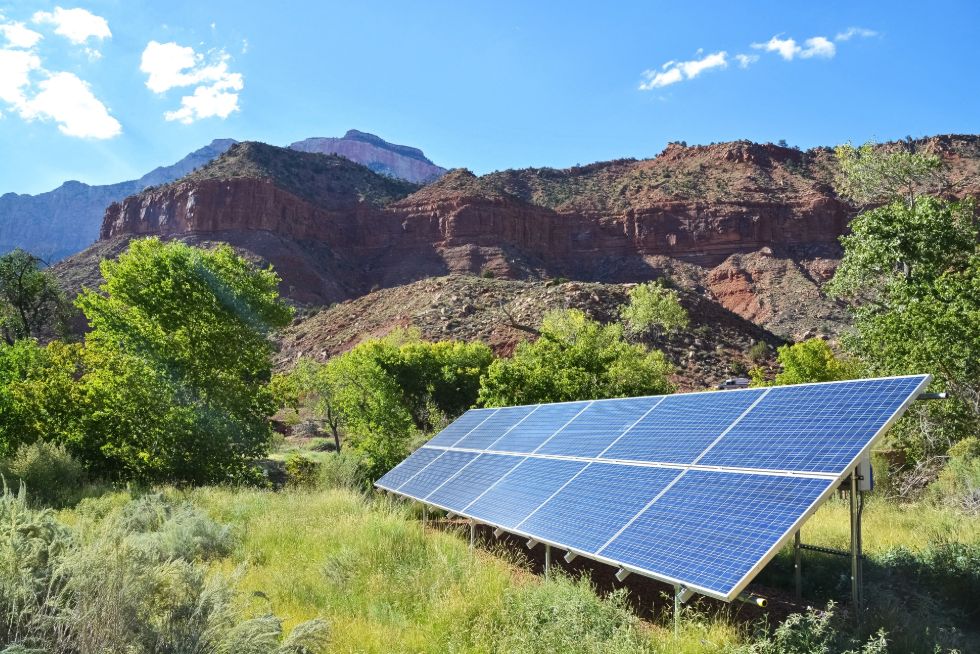
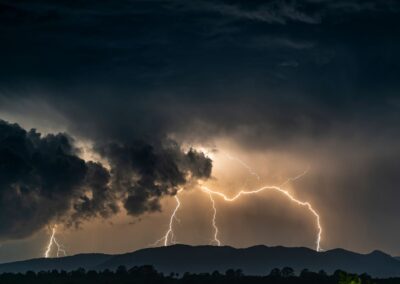
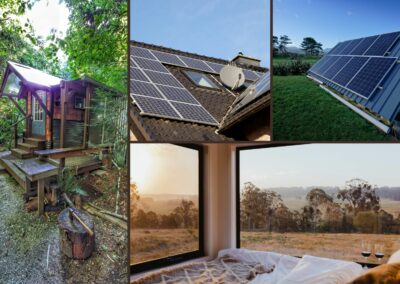


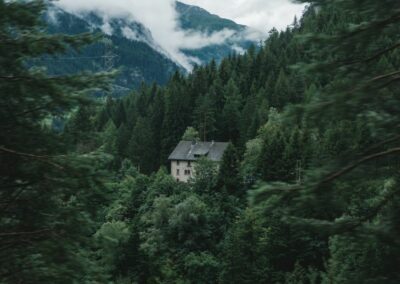
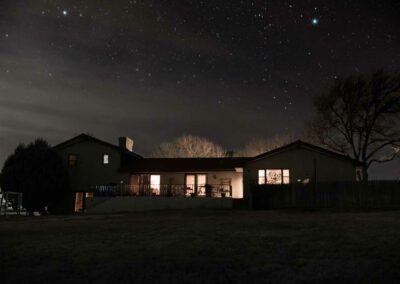
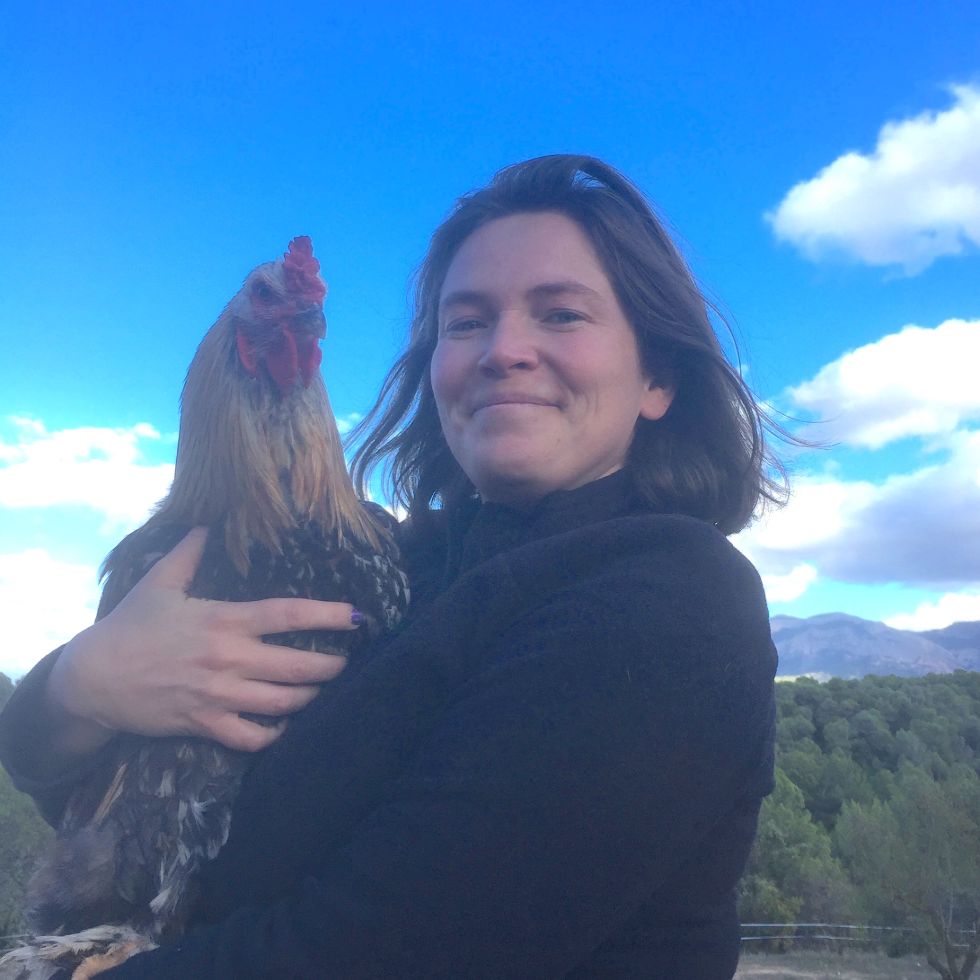
0 Comments